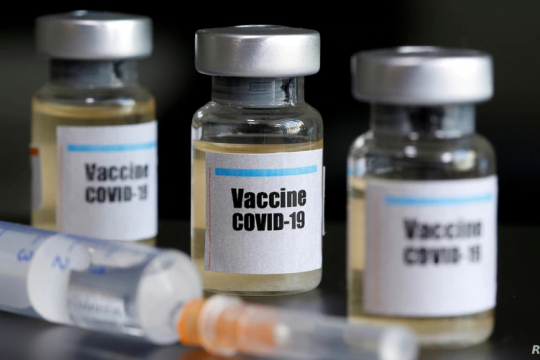The Ministry of Finance has proposed a plan to create a COVID-19 vaccine fund to buy 150 million doses for 75 million people in Vietnam. The total cost for this would be about 25.2 trillion VND, more than a billion USD. Considering that the state budget is 16 trillion VND, the question is: is this plan feasible? The answer from EfD-Vietnam is YES.
An ongoing research project of Pham Khanh Nam, Truong Dang Thuy, Pham Nhu Man, and Le Thanh Nhan has found that creating a vaccine fund is possible with the participation from households. About 76% of respondents in a Ho Chi Minh city survey is willing to pay 700,000 VND (about 30 USD) for a two-dose COVID-19 vaccine.
Vaccine is the long-term solution
Assuming that the rate of agreement, 76%, will be the same at the nation-wide level, and the willingness to pay will be half of the price in Ho Chi Minh city (the average income in this city is about twice compared to the national level), the total willingness to pay of all households in Vietnam is about 27.2 trillion VND.
Even though Vietnam has been quite successful in controlling the spread of the COVID-19 mostly by early detection of suspected infections and strict social distance, vaccines may be the only effective long-term solution, helping the body create an immune response against the virus.
Affordability is the key
However, it is difficult for developing countries like Vietnam to fully finance the vaccination for the whole country, especially when the state budget is under great pressure because of the pandemic. Therefore, the payment from the private sector plays an extremely important role, determining the success or failure of the policy of herd immunity through vaccines.
The study also revealed that the respondents’ willingness to pay for the vaccine isn’t much affected by the effectiveness or duration of the vaccine. The number willing to pay for a vaccine with a 50% efficiency doesn’t differ much from that of an 80%. They also don’t discriminate between paying for a 1-year or 3-year validity of the vaccine. What matters is whether the price is affordable in comparison to their income or not. In addition, if their living and working environment seems unsafe due to COVID-19, their willingness to pay is higher.
Creation of fund is approved
These preliminary results suggest that it’s feasible to finance the vaccine fund for the whole country by the households paying for their vaccines. These findings contribute to an answer to the big question raised above.
A week after the proposal, on 26 May, the Prime Minister approved the creation of a special fund to drive an effective vaccination program against COVID-19.
By: Le Thanh Nhan
